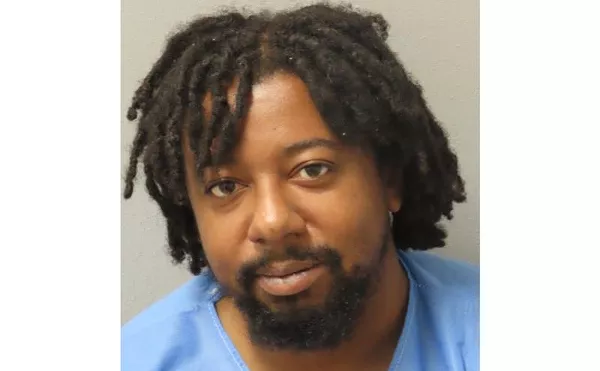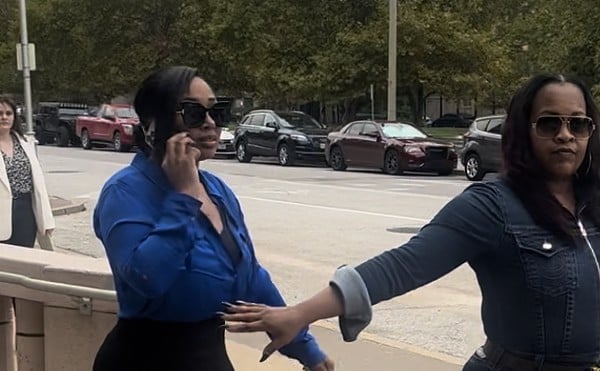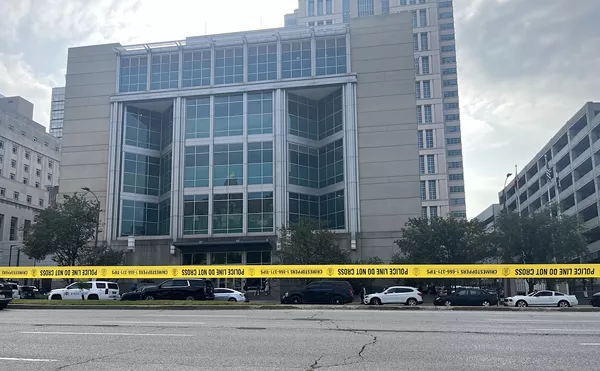
USED WITH PERMISSION
Dawn Huston, shown here in 2014, has spent eight years in prison for five ounces of weed.
In 2011, Dawn Huston, a 45-year-old woman from the small western Missouri town of Marshall, sold weed to an undercover Missouri State Highway Patrol trooper. In a series of small deals, she unloaded about five ounces of cannabis – worth about $500 – before being arrested.
“I was just helping somebody get some weed. And my friend set me up,” she says.
For the crime she received an incredibly harsh sentence: more than a decade in prison, of which she has now served eight years. But on January 31 she became Governor Mike Parson’s latest act of clemency, receiving a commutation that restores her eligibility for parole and gives her a chance for early release.
“I just can’t wait to just be with my family,” Huston says in a phone interview from Chillicothe Correctional Center. “I haven’t seen my dad in so long, and I’m so excited to see my kid.”
Huston is at least the 15th convicted drug offender to have their sentences commuted by Parson since late 2020, when the governor announced his first slate of pardons and commutations after years of public criticism of the state’s backlog of more than 3,600 pending clemency applications.
Since then, thirteen of Parson’s commutations – including Huston’s – have involved non-violent drug offenders whose prison sentences had been “enhanced” by a now-repealed Missouri law that targeted drug offenders with prior drug convictions.
Huston’s weed deals with the trooper, along with a previous drug conviction from 2009, spurred the particularly harsh sentence for the mom of a young daughter. She pled guilty to the new charges in 2014 and was sentenced to fifteen years. She had no idea her conviction automatically eliminated any chance for parole.
“They didn’t tell me that at all,” she says.
This whole time, Huston fully expected to be paroled. And with good reason; according to prison data, in 2020 Missouri released more than 5,000 inmates from state prisons, with 85 percent of those releases coming through the parole system, which allows offenders to continue serving their sentence under supervision outside prison. Drug offenders released on parole served only an average of 21 months, or about 30 percent of their total sentences.
Huston believed she was on the same path. She enrolled in classes for offenders preparing to reenter the outside world, and had even been given work release jobs outside the prison walls. All signs pointed to a parole hearing in 2018.
Instead, that year, Huston says she was called into a meeting with the prison’s parole officer.
“They said, ‘You can’t leave, no early release, no nothing, you have to stay until 2026,’” she recalls. “I thought I was supposed to go home. I had no idea what she was talking about. I was just crying.”
Huston’s long sentence and parole restriction isn’t unique. Since 2013, Riverfront Times has been reporting about how the law that enhanced her case – known as the “Prior and Persistent Drug Offender” statute – was used by prosecutors to transform a few grams of drugs into decades of prison time. People with previous drug convictions who faced new charges could see sentences of 30 years or more, exceeding even the punishment for first-degree murder.
Although the law was repealed by the legislature in 2014, the change to the criminal code is not retroactive. Last year, an RFT investigation based on prison data showed more than 200 “prior and persistent” drug offenders still serving no-parole sentences in Missouri prisons, a list of names that included Huston.
In 2018, Huston’s shock that she wouldn’t be receiving parole eventually molded into determination: That year, she filed the first of several clemency applications, and it appears one of them found its way to Parson’s desk.
On January 31 this year, Huston says, she was summoned once again for a meeting with the prison’s parole officer, who said the Governor had commuted her sentence.
“I just cried,” she says. “I just kept crying and crying, because that was the same office where they told me I had eight more years.”
The timeline for her release is unclear. Last summer, Robert Franklin – who had been serving a 22-year sentence for trafficking about a pound of marijuana – left prison two months after the governor announced his commutation.
Huston is hoping her freedom will come just as quickly, but she says it’s still hard to fully believe that what is happening is real.
“I don’t think I can imagine it yet,” she says. “Right now, I'm just going through the motions, and until I hear my name being called on the radio, until I think I'm all the way, in the car, gone – that's the only way I'm going to believe that it's happened.”
Follow Danny Wicentowski on Twitter at @D_Towski. E-mail the author at [email protected]





